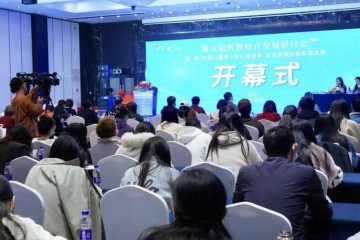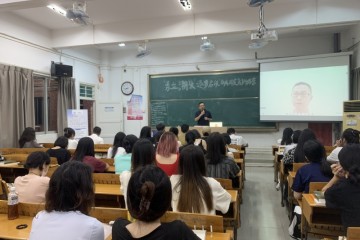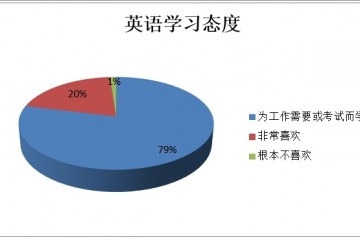
轻度认知障碍
近来,宣布在美国神经病学学会杂志《神经病学》上的一项研讨显现:玩电脑游戏、多多社交对推迟回忆力的阑珊有协助。
A new study has found that mentally stimulating activities like using computers, playing games, making crafts and participating in social activities are linked to a lower risk or delay of age-related memory loss called mild cognitive impairment (MCI).
这项新的研讨发现,像运用电脑、玩游戏、手艺制作和参与社交活动这样的精力影响活动,与较低危险或推迟患上轻度认知障碍有相关(轻度认知障碍:与年纪相关的回忆损失)。
左:正常人的大脑
中:轻度认知障碍者的大脑
右:阿尔茨海默病患者的大脑
轻度认知障碍(mild cognitive impairment)是一种常见的老年医学症状。
这种症状和考虑才能还有回忆力有相关,但它与咱们常说的“发呆(dementia)”又不是一回事。它的症状要更轻一些。
They may struggle to complete complex tasks or have difficulty understanding information they have read, whereas people with dementia have trouble with daily tasks such as dressing, bathing and eating independently. However, there is strong evidence that MCI can be a precursor of dementia.
患轻度认知障碍的人或许很难完结杂乱的使命,或许较难了解他们所读到的信息,可是发呆症患者则很难独立完结日常使命,比方穿衣、洗澡和吃饭。不过,也有强有力的依据标明轻度认知障碍或许是发呆的先兆。
"There are currently no drugs that effectively treat mild cognitive impairment, dementia or Alzheimer's disease, so there is growing interest in lifestyle factors that may help slow brain aging believed to contribute to thinking and memory problems — factors that are low cost and available to anyone," said study author Yonas E Geda, MD of the Mayo Clinic in Scottsdale, Arizona, and a member of the American Academy of Neurology.
美国神经病学学会成员、亚利桑那州斯科茨代尔市梅奥医疗中心医学博士、该研讨的作者Yonas E. Geda表明:“现在还没有能够有用医治轻度认知障碍、发呆或阿尔茨海默病的药物,因而,人们关于生活方式要素的影响越来越感兴趣,这些要素或许有助于减缓大脑变老,人们信任特定生活方式有助于处理考虑和回忆问题,而且改动生活方式的本钱很低,任何人都能够参与。”
"Our study took a close look at how often people participated in mentally stimulating activities in both middle-age and later life, with a goal of examining when such activities may be most beneficial to the brain."
“咱们的研讨细心观察了人们在中年和晚年参与精力影响活动的频率,意图是研讨在什么时候这类活动对大脑最有利。”
- Findings -
- 研讨发现 -
Researchers found that using a computer in middle-age was associated with a 48 percent lower risk of MCI.
研讨人员发现,在中年运用电脑会下降48%的轻度认知障碍危险。
Engaging in social activities, like going to movies or going out with friends, or playing games, like doing crosswords or playing cards, in both middle-age and later life were associated with a 20 percent lower risk of developing MCI.?
无论是在中年仍是晚年,参与比如看电影、和朋友出去玩、玩填字游戏,或许打扑克牌之类的社交活动都会下降20%患轻度认知障碍的危险。
Craft activities were associated with a 42 percent lower risk, but only in later life.
参与手艺活动协助人们下降了42%的危险,但仅在晚年有用。
研讨人员还发现,用电脑、打纸牌、看电影等活动还有叠加效应。
简而言之便是,晚年玩得越嗨,脑子就越好。
Those who engaged in two activities were 28 percent less likely to develop memory and thinking problems than those who took part in no activities, while those who took part in three activities were 45 percent less likely, those with four activities were 56 percent less likely and those with five activities were 43 percent less likely.
参与两项活动的人比不参与任何活动的人呈现回忆和思想问题的或许性要低28%,而参与三项活动的人比不参与任何活动的人低45%,参与四项活动的人要低56%,参与五项活动的人要低43%。
研讨者一起也指出,尽管该项研讨发现了这些活动与轻度认知障碍低危险之间的相关联系,但这并不是说患有轻度认知障碍的人就能够经常去参与这些活动。
有网友表明自己总算找到了记忆欠好的原因了,评论说:
I knew it. Now I have a source to prove that mentally demanding games are a good brain exercise!
我就知道!现在总算有科学研讨证明烧脑的游戏是训练大脑的好办法了。
还有网瘾少年表明:
I knew spending over eight hours on the internet was not for nothing!
每天网上冲浪8个小时以上仍是有点道理嘛,我早知道了。
有人以为训练大脑跟跑步撸铁是一个道理:
It makes sense that using your brain makes it stronger. Just like what happens with muscles. For example, reading is a task where the brain is used — therefore, learning video games is even a harder training. There is a fact about nuns' brains: because they read so many biblical books, Alzheimer's didn't hit them at all.?
运用大脑能够让它更健旺,这不错。就和训练肌肉一个道理。比方说阅览是要用脑的,所以玩电子游戏应该是对大脑更剧烈的训练。有一个关于修女大脑的研讨就显现,她们底子就不会得阿尔茨海默病,由于每天读书(圣经之类的)。
But it should be noted that reading itself isn't a complex task. Being able to analyze, debate and form rational ideas while reading is the key. Reading is only as complex as the material you're engaging with.
但也要注意,阅览活动自身不是一个很具有挑战性的使命。阅览的一起,细心剖析、细心考虑、安排理性的观念才是要害。你阅览的资料越难,阅览活动才越难。
本文来历:中国日报网 责任编辑:郑娟_NQ0738

 ACAA聚焦数字科技,为行业发展注入新活力
ACAA聚焦数字科技,为行业发展注入新活力 港澳台青年文化嘉年华在蓉举办
港澳台青年文化嘉年华在蓉举办 2023年度国考即将开考这些事项考生要了解
2023年度国考即将开考这些事项考生要了解 医教结合研讨会深度探讨孩子学习困难心理健康教育问题
医教结合研讨会深度探讨孩子学习困难心理健康教育问题 高校团队研发一键式仿真系统助力智慧交通建设
高校团队研发一键式仿真系统助力智慧交通建设 校企联动共育创新人才,“勇立潮头·逐梦启航”新媒体实践训练营硕果累
校企联动共育创新人才,“勇立潮头·逐梦启航”新媒体实践训练营硕果累 人文教育助力大学英语教学新模式
人文教育助力大学英语教学新模式 三尺讲台一生奉献(追梦路上)
三尺讲台一生奉献(追梦路上)